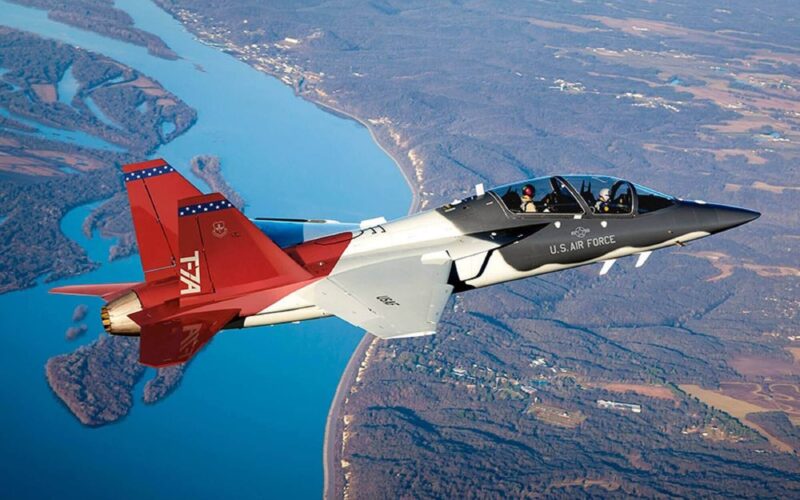Flying instability was discovered while testing the upcoming T-7A Red Hawk advanced trainers, leading the United States Air Force to delay the full-rate production decision from 2022 to 2023.
On June 16, 2021, USAF officials said that a wing rock issue at high angles of attack was identified during flight tests. Coupled with a lack of spare parts from suppliers due to the COVID-19, the military decided to postpone their decision regarding full-rate production.
A day later, Boeing responded in a statement seen by Aviation Week saying a software fix to resolve the flight envelope problem had already been unrolled on the two test aircraft.
Boeing, in partnership with the Swedish manufacturer Saab, started the conception of the T-7A Red Hawk after winning the TX competition, which aimed to find a replacement for the Cold War-era Northrop T-38 Talon. Saab began production work in January 2021.
Only 36 months passed between the first concept of the aircraft and its maiden flight, something that Boeing says it owes to ‘digital engineering and design.’ As such, it became the first in the USAF E-Series, which designated it eT-7A. The name of Red Hawk was chosen as an homage to the African-American fighter pilots of the Second World War, the Tuskegee Airmen, who painted their planes’ tails red.
The T-7A Red Hawk should enter service by 2023 for the advanced training of future fighter pilots. 351 aircraft were ordered by the USAF, for a total of $9.2 billion.

